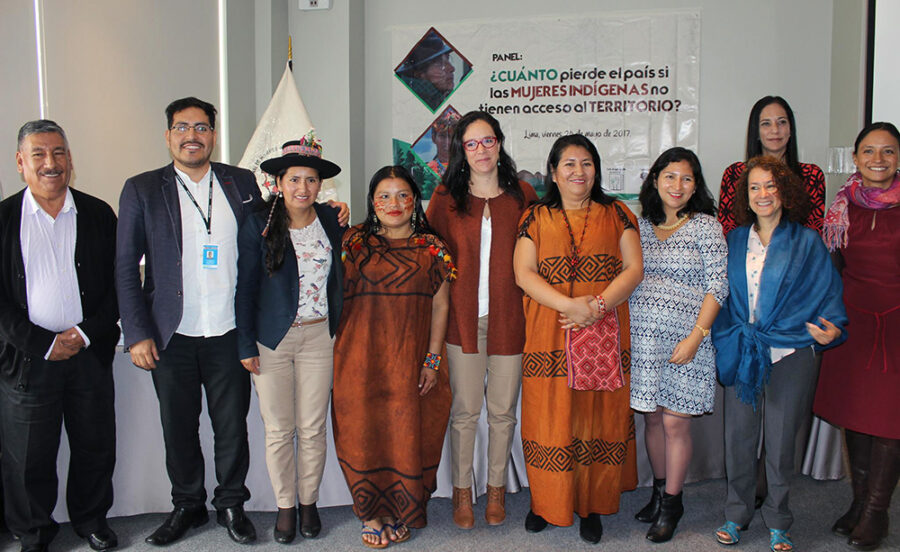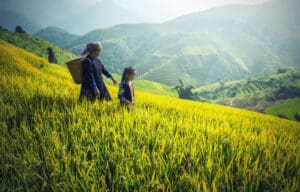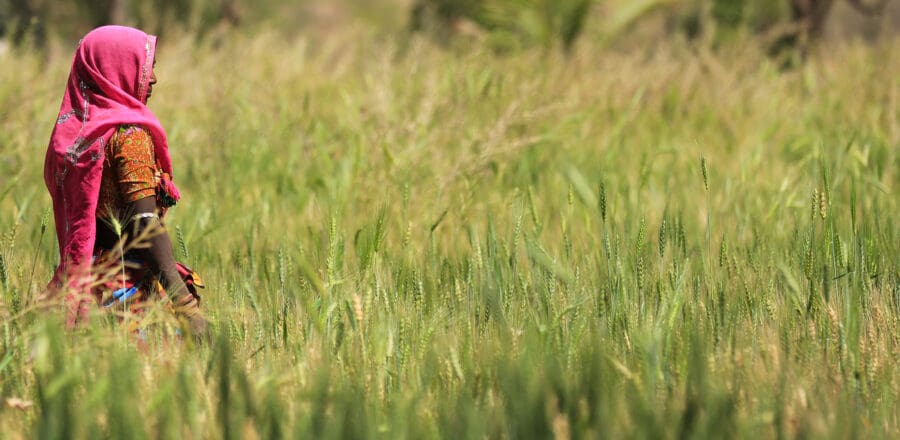This story was produced by the Chatham House Forest Voices series on September 6, 2021.
“We are Indigenous women in resistance. We are a living culture, fighting for our identity, for our territories, and for the environment.”
Ketty Marcelo Lopez has made it her life’s work to give a voice to the voiceless. Born in the rainforest of the Peruvian Amazon, she is one of the country’s 3.2 million Indigenous women and a lifelong campaigner for the rights of her community. Since 2009, Ketty has been working with Peru’s National Organization of Indigenous Andean and Amazonian Women (ONAMIAP) – an organization campaigning for the rights of Peru’s Indigenous women.
This is a battle increasingly being waged on one key front: land.
“My mission and the mission of ONAMIAP is to combat climate change and ensure food sustainability for Peru’s Indigenous Peoples,” Ketty explains. “And the foundation for all of that is land rights – encompassing everything is the fight to defend our territory.”
Peru’s Indigenous Peoples are stewards of some of the most biodiverse ecosystems in the world, with more than half covered in forests and more than 7,500 endemic plant species. But these forests and their inhabitants are under threat as, without legal recognition, Indigenous territories are vulnerable to land grabs by government and industry.
From 2001-20, the country lost 3.39 million hectares of tree cover and, in recent years, the government has leased more than 80 per cent of the Peruvian Amazon to oil and gas companies despite of much of this land being inhabited by Indigenous groups.
“There has been so much logging going on, most of the forests have been cut,” Ketty shares. “The river is contaminated. There are fewer fish, and there is less food. And now we are seeing the impact of climate change. The heat is brutal, we can no longer work the land for long before we have to stop and find shelter.”
For Indigenous people such as Ketty and the women ONAMIAP represents, the impact of land grabs and deforestation has been catastrophic. “For our community, the land is everything,” Ketty explains. “It is the place where our ancestors rest. It is the place where we build our identity.”
Because of this intimate relationship with the environment, the stakes for Indigenous Peoples are high. Ketty continues: “When we fight to protect the land, the forest, and the biodiversity – we also fight for our lives.”
About the Forest Voices series at Chatham House
This new set of stories aims to draw attention to the critical importance of good forest governance for achieving global commitments on biodiversity, climate change and poverty eradication. Through personal perspectives on a variety of approaches from around the world, the series seeks to highlight some of the lessons learned so far and what further action will be needed at the UN’s COP26 climate conference in November 2021 and beyond.
Watch this video from the Summit of Indigenous Women of the Amazon Basin, held in October 2021 in Colombia. Supported by RRI, this summit promoted effective participation of Indigenous women in decision-making spaces for the protection of the Amazon basin. It brought together over 150 Indigenous women leaders from the nine countries of the Amazon basin region to identify their shared opportunities, challenges, and priorities and craft a common message on more effective advocacy for women.






